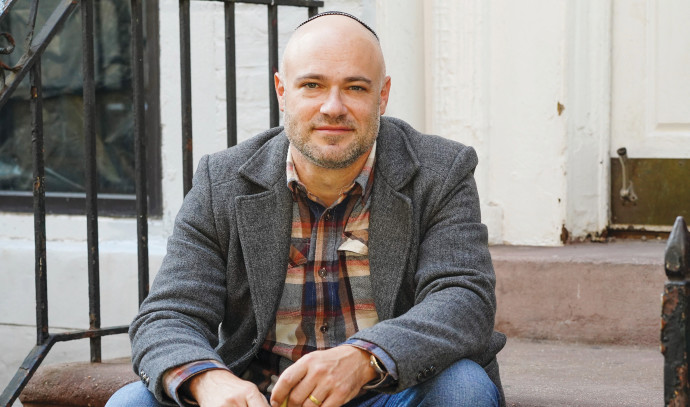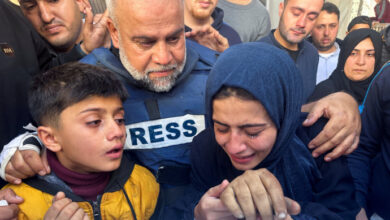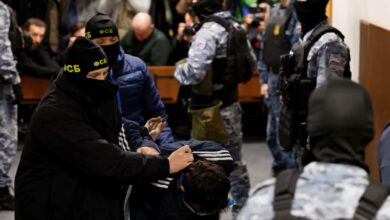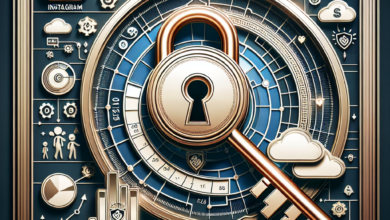‘Goyhood’ – the story behind his debut novel

‘I still have a foot in two worlds. I’m trying to bring those two worlds together, but it remains a struggle,” said Reuven Fenton, whose debut novel, Goyhood, was just released by Central Avenue Publishing.
The two worlds he is referring to are Orthodox Judaism and secular American life, and he confronts the dichotomy between these usually distinct universes in Goyhood.
Fenton, a rare New York Post reporter who is Orthodox, is known to readers for his hard-hitting news stories, which often deal with crime, in a tabloid famous for its eye-catching headlines and focus on sensational aspects of the news. His latest article the day after our interview carried the headline “Man fatally stabbed after running into NYC bodega for help as violence plagues Big Apple stores,” which gives a good idea of the kind of news he covers.
He is the author of a nonfiction book, Stolen Years: Stories of the Wrongfully Convicted, published in 2015; but with Goyhood, he turned away from crime and looked into himself to come up with a unique story of identity and redemption that examines no less of an issue than the essence of Judaism.
Goyhood tells the story of Mayer (né Marty) Belkin, a brilliant yeshiva student in Brooklyn married to the rabbi’s daughter. As the book opens, his biggest problem is that they haven’t been able to have children yet. But a phone call changes everything, and suddenly he heads back to the small Georgia town that he left years ago.
IDA MAE, his hard-drinking, hard-partying mother, has passed away and he has to attend her funeral with his twin brother, David, a firmly secular, hedonistic ne’er-do-well from whom Mayer has been estranged for years. The twins grew up knowing next to nothing about their background until one day, when they were 12, a Chabad rabbi came to town, and their mother told him the boys were Jewish. The rabbi took Mayer, eager for structure, under his wing. A natural Torah scholar, he headed to Brooklyn and never looked back.
Until now, that is, when he discovers, to his disbelief and horror, that their mother was not actually Jewish. At first, all he wants to do is convert to Judaism as swiftly and discreetly as possible. It turns out that a spot is open at a southern beit din (religious court), and David agrees to take him there, hoping they will find a place on the way to scatter their mother’s ashes – not being Jewish, she asked to be cremated.
Mayer has never learned to drive, among many other experiences he has missed out on, so David gets behind the wheel. Having recently gotten his life together and becoming relatively well off, David wants them to go on a road trip through the South until the conversion ceremony, pointing out that since they are no longer Jewish, much that was forbidden to them before is not a problem anymore. And so it begins.
“At the beginning of the book, Mayer says, ‘I wish I could just go into a medically induced coma until I can have my conversion. Basically, I’d like to not explore this at all. I don’t want to look at the meaning of any of this,’” said Fenton. But to quote the cliché that Jeff Goldblum utters in Jurassic Park, “Life finds a way,” and Mayer starts examining his, even though consciously telling himself that nothing has really changed. The road trip throws him into many life-changing situations, as road trips are bound to, since by definition they take travelers out of their comfort zones.
FENTON SAID he saw the fun-loving David and the pious Mayer as embodying two different sides of human nature. “You know, hassidic teaching, Kabbalistic teaching, talks about having a godly soul and an animal soul, which you can expand to talk about how we all have our physical nature and our spiritual nature; our innocence and our worldliness. This duality in all of us: It’s not really a good-and-evil dichotomy… but there’s this constant effort to balance those things, the physical and spiritual. My characters do represent this duality – that’s certainly true in me. I think I’m very much a combination of those two characters,” he said.
“At first, they’re estranged, and I look at them as incomplete people – and when they find each other and ultimately reunite, they’re what I would consider one single, perfect individual who has found that balance,” he said. “David is a little less hedonistic, and Mayer is less isolated and less in his godly bubble, and they reconcile as this one sort-of-balanced person.”
Fenton peppers the book with biblical and Talmudic references, as he does our conversation, and it’s clear that he is fascinated with Jewish learning and that religion for him is not merely a question of which holidays he celebrates and what he eats. It’s not surprising, then, that Goyhood is a much more complex story than the popular book and TV series Unorthodox, and many others that show people abandoning religion and feeling free.
“I don’t actually approve of those stories. I think they’re anti-religious. I didn’t feel like going there,” he said. “I took Mayer out of New York and sent him on a road trip through the South because I didn’t want to write a book about him being in his community and dealing with some fallout that might happen…
“One obvious choice would have been to keep him in New York and he has this big secret, and then someone finds out and he all of a sudden gets ostracized because he’s now a gentile,” Fenton said. “But that’s not how it would happen at all. I wanted to keep the book true to life in some sense.”
If he would not be halachicly Jewish and someone in the hassidic community would discover that, Fenton said, people would be very supportive and would help him convert as quickly as possible so he could go back to his religious life.
Mayer’s central dilemma
The choice to send Mayer to the South wasn’t only to keep the story true to life but also to explore the deeper issues that he is forced to grapple with because of his discovery.
“To explore the existential aspects of this story, I took him out of New York because I wanted him to be in a place where he would really think about all this and explore these questions of faith: ‘What does it mean that for 25 years I was praying the prayers of a Jewish person to God, and all my prayers were coming out this way, but I wasn’t really Jewish – and what does this mean?’”
Goyhood is an unusual novel that seamlessly combines comedy, drama, and deep religious questions. And given Mayer’s central dilemma – Can he go back to being a Jew now as if nothing has changed? Should he? Does he want to? – it has a surprising amount of suspense. At several moments in the interview, we had to weigh what would be a spoiler in any article about Goyhood and decided that it would be best to keep the reader guessing, as I did when I read it.
Asked whether the story in the book was inspired by anything that happened to someone Fenton knew, he said that it wasn’t. While there are quite a few stories out there of people discovering that they have Jewish roots they didn’t know about, the reverse experience – a Jew discovering he or she is not in fact Jewish – is rare. So I wanted to know how Fenton came up with the idea.
“I was unaware when I wrote the book of that actually happening to anyone before, but subsequently I have heard that it does occasionally happen, where someone discovers that they’re not actually a Jew,” he explained. “But when I was writing, I had never heard of it… and to me it was just a very interesting scenario. I thought that would be a wacky occurrence – what would you do if that happened to you? And that’s how the book was spawned.”
Art imitating life
The more you know about Fenton’s background, the more it makes sense that this story would be the subject of his first novel.
He is one of eight children born to a mother who is a psychiatrist and an internist father who passed away when Fenton was 16. The family lived a secular Jewish life in Lexington, Massachusetts, but at a certain point Fenton’s parents began exploring their Judaism and eventually became Orthodox.
He and three of his siblings were already born when his parents made this huge change in their life. “The younger ones were totally born into religious life and always were completely comfortable with it, but the older ones – we’re a little different,” he said. “It came at this age when I was not equipped for it all, and it created this real tension in me, this real conflict in me of not wanting to let go of the secular but also deeply identifying with being Jewish, as I always had.
“It made me very resentful of my Judaism and resentful of my parents for bringing this abrupt change upon us and taking away my beloved Saturday morning cartoons that I couldn’t watch anymore and that actually formed my identity for years,” Fenton said.
“Even to this very day, I still have a self-consciousness about my Judaism, not necessarily wanting to display it outright when I’m out and about, especially for work… I know there are other Jews who are fully comfortable putting it on display at their jobs, but I’m not.”
AT ONE point in the novel, the brothers meet up with seemingly the last person either one of them would be interested in speaking to: a female Reform rabbi who is very knowledgeable about Jewish texts. She brings a different perspective to the story that has a transformative effect on the two men.
“This totally just came up organically; I wasn’t planning it, but I thought it would be fun to put Mayer in a situation where he’s a fish out of water,” Fenton said. “And wouldn’t it be funny if he ends up (talking) with a Reform rabbi, a woman no less, and that’s more offensive to him than any other situation that he’s found himself in yet. And I would take it a step further by having that Reform rabbi be sort of like the wise King Solomon, who ends up helping resolve the conflict.”
It’s a section that spotlights Fenton’s passion for Jewish thought. “She ends up giving counsel that is parallel to the Chabad rabbi at the beginning of the story, which is essentially that all these things happen for a reason… In some cosmic way, you have to find out what the reason for all this was rather than running from it,” he said.
“The 180 (degree turn) really occurs, really clicks into place, when the Reform rabbi tells him you have to embrace the inevitability of what has occurred to you and try to find out why – and how you can ultimately look back on this as having been the best thing that happened to you,” the author said.
“She’s very skilled and has a lot of wisdom.”
‘Post’ man
Picking such a catchy title for his book displays a distinct kind of wisdom and brings together Fenton’s skills as a student of Jewish thought and a street-smart crime reporter.
“I don’t write headlines, but I’ve read many, many woods (front-page headlines) at the Post. There had to have been inspiration on some unconscious level, and that’s where the name of the book came from… To have a title that’s sort of a play on words – and it’s completely relevant to the story and it’s also sort of provocative – that is a totally New York Post-inspired thing that comes from an understanding of what is eye-catching,” he said.
“Had I never worked for the New York Post and had I written this novel, I would have written something that would have probably been a four- or five-word title. It would have been part of a quote from the Bible or something like that and much less interesting.”
Following Oct. 7, Fenton has visited Israel to report for the New York Post, and has also covered the anti-Israel, pro-Hamas college campus protests, as well as the culture wars that have targeted American Jews. Speaking about a spreadsheet going around the US literary world identifying authors deemed Zionist and calling for a boycott, he said, “It makes your blood go cold. It makes you want to punch a hole through the wall out of frustration…
“A few weeks ago I was in Israel, and to be there was such a relief. People in New York are like, ‘It must be so surreal in Israel; it must be so depressing.’ But I feel more at home and at peace and calm in Israel than I have felt in New York. New York is surreal; New York is a cesspool. It’s a nightmare.”
He was impressed that although Israelis disagree on many issues, “Everyone is carrying the flag.”
COVERING THE campus protests has been especially difficult. “I’ve been to countless rallies – and when you’re in a pro-Palestinian, antisemitic rally, and to cover it you have to march with them – for a couple of hours sometimes – and you’re in the thick of it with thousands of people, and you get sucked into their energy, youthful exuberance and confidence, and the incredible volume of their cries and their drum… and you’re (feeling) like, ‘They’re gonna win; we lost.’ They’re so convincing and they’re so smooth, and their tactics are so well thought out.” After covering these rallies, he said that it takes him hours to wind down.
Even before the war began, he had an uphill battle getting his novel published. “The publishing world is insane to begin with, and it’s so incredibly woke right now that to be a white male with two white male protagonists, a lot of people would have said, ‘Don’t even bother.’ I did bother, and I really went all out and through a lot – and with persistence and really good luck, it got published. Writing this novel has truly deepened my faith,” Fenton said. “The fact that this worked seemed like a one in a million” chance, he said. “It was like a miracle.”





